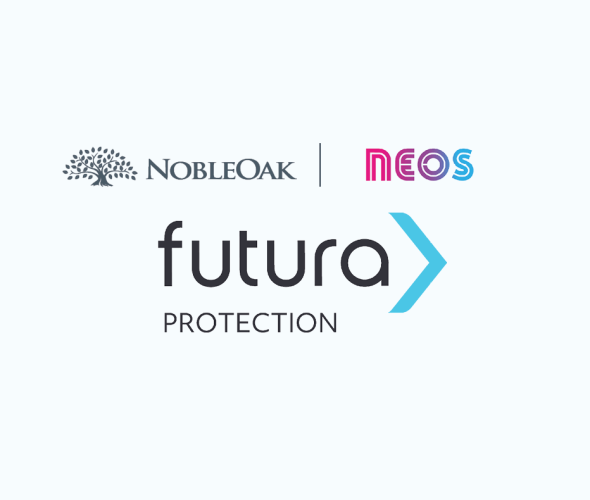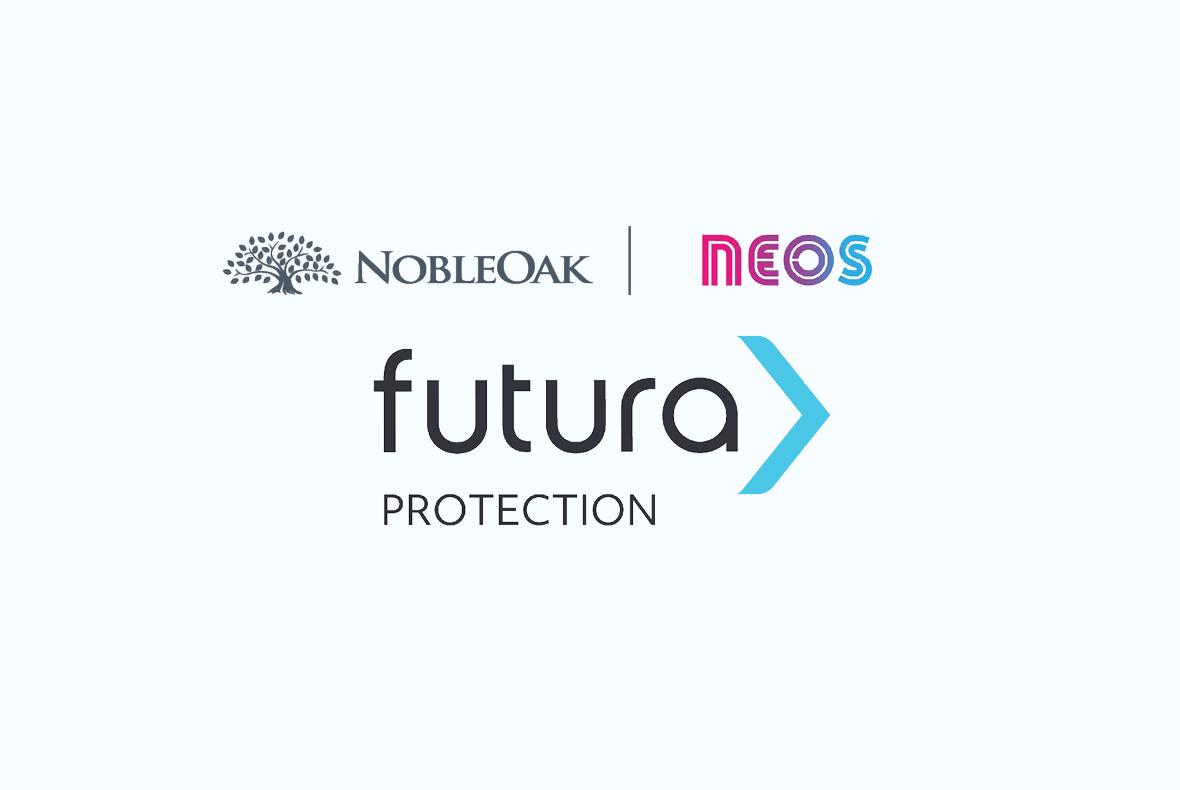Death Benefits & Life Insurance: What Is It & Who Can Make a Claim?
NobleOak Life Insurance policies include a feature called a ‘Death and Terminal Illness Benefit’ (in this article, we’ll refer to this as a ‘death benefit’). Death insurance, (often referred to as life insurance or life cover) can help to safeguard those nominated in your policy against some of the financial stress they would face if you were to pass away.
This article will provide answers to commonly asked questions about our death benefit insurance or life insurance, so you can make an informed choice. We’ll also provide information about how to make a death benefit claim, and what you can expect if you are eligible for a death benefit payment.
Key takeaways:
- Life insurance pays a lump sum death benefit to designated beneficiaries upon the policyholder’s death.
- There are a number of insurance options that offer death benefits, and you can also nominate a beneficiary to receive your superannuation after you die.
- Death benefit payment amounts vary depending on the specifics of the insurance policy.
- Death benefit payments can be used for various purposes such as covering funeral expenses, settling outstanding debts, supporting ongoing living expenses, and funding education costs.
What is a death benefit?
With NobleOak Life Insurance, the Death and Terminal Illness Benefit functions to provide financial support to those nominated in your policy after you pass away.
If you have life insurance coverage with NobleOak when you pass away, NobleOak will pay a specified amount as a lump sum to your nominated beneficiaries or estate. Additionally, if you become terminally ill, NobleOak can advance the death benefit lump sum (in situations where death is likely to occur within 24 months).
A death benefit can help your family with bills and other financial obligations during a time when they need it most. Whether they require funds to keep up with mortgage or rent payments the death benefit payment will help to make a difficult time less overwhelming.
Life insurance and death benefits
In Australia, several types of insurance products offer death benefits. These include:
- Life insurance: Provides a payment to beneficiaries if the policyholder dies within the policy term. NobleOak offers Life Insurance that includes death benefits.
- Trauma insurance: Some trauma insurance policies include death benefits if the policyholder dies as a result of a specified critical illness. NobleOak’s Trauma Insurance provides a lump sum payment if you’re diagnosed with a serious medical condition (as listed in our PDS).
- Total and Permanent Disability (TPD) insurance: Although primarily designed to provide a lump sum if the policyholder becomes permanently disabled, some policies may include death benefits if the insured event leads to death. TPD Insurance is included as an option with NobleOak Life Insurance.
- Income protection insurance: Typically, income protection insurance does not provide death benefits as it is designed to replace a portion of the policyholder’s income if they are unable to work due to illness or injury. However, some policies may offer ancillary benefits that include death benefits.
Who can claim death benefits?
If you have been nominated as a beneficiary in the life insurance policy of the deceased, you will be eligible to make a death benefit claim. A ‘nominated beneficiary’ is an individual who is named in the policy, and the policy holder can nominate more than one beneficiary to receive the death benefit. A beneficiary may or may not be a dependent – while it’s most common for a beneficiary to be a direct family member (such as a spouse or child), it could also be a friend.
If no beneficiaries are nominated or the nomination is invalid, the death benefit will be paid to the estate and distributed according to the will or intestacy laws.
Can beneficiaries be changed?
A beneficiary in a life insurance policy can typically be changed. The process generally involves contacting the insurer and then completing a form. The insurer will then process the request and confirm the change.
If you have life insurance coverage, it’s important to regularly update beneficiary information in your policy. This is because life circumstances can change over time – events such as divorce or the birth of a new child can affect your situation. If you make sure to regularly update your policy with current information, this can avoid legal complications for your family when you pass away.
What happens if a beneficiary is a minor?
Death benefits cannot be paid directly to minors under the age of 18. Instead, the benefit is typically held in trust or managed by a legal guardian until the minor legally becomes an adult.
Alternatively, the policyholder can specify in the policy that the funds be held by a trustee or placed in a trust specifically established for the minor’s benefit. This arrangement ensures that the funds are managed responsibly until the minor is legally able to handle the financial benefit themselves.
What happens if you don’t nominate a beneficiary?
If you don’t nominate a beneficiary in your life insurance policy, the death benefit will typically be paid to your estate. In this circumstance, the death benefit will be subject to the probate process, which can delay the distribution of funds to your heirs. Probate is the legal process of administering your estate, which includes verifying your will, paying off debts, and distributing the remaining assets according to your will or intestacy laws.
How to claim death benefits
If you are the beneficiary for a Life Cover policy with NobleOak, you can make a death benefit claim through our insurance claim page. Our team is proud to process genuine claims quickly and with care. We’ll also quickly advance your family $15,000 of your life cover amount to assist with funeral expenses, upon evidence of age and receipt of the death certificate. We will also provide a grief counselling benefit reimbursing up to $1,000 of the cost of grief counselling services for you, your spouse or partner if we pay a benefit for death or terminal illness.
The death benefits claim process:
- Notify NobleOak by calling our Claims Team on 1300 551 044.
- Complete the claim form and return with the required supporting documents.
- Your claim will then be assessed – we’ll notify you when this process is complete.
- If your claim is accepted, we’ll make the payment to you or your nominated beneficiary/ies.
Our claims philosophy is built on our fundamental desire to put our clients first. All claimants are assigned a dedicated claims consultant, based in Australia, to help you through the process.
Determining the death benefit amount
The death benefit payment amount will depend on a number of factors. For NobleOak Life Cover policies, it’s up to the individual as to how much cover they wish to take out (up to a limit of $25m for those aged 16 – 69 and up to $500,000 for those aged 70 -74), and therefore how much their beneficiaries will receive when they pass away.
NobleOak also offers TPD, Trauma, and Income Protection insurance. You can learn more about our different offerings in our guide: What products sit under the umbrella of life insurance and how do they differ?
Is there a lump sum death benefit?
NobleOak’s life insurance provides a lump sum payment to the nominated beneficiaries in the event of the policyholder’s death. This benefit can also be paid if the policyholder is diagnosed with a terminal illness and has a life expectancy of 12 months or less.
The amount of the lump sum death benefit depends on the coverage amount selected by the policyholder at the time of purchase. Policyholders can choose a coverage amount that suits their needs, up to a maximum limit determined by NobleOak.
The lump sum death benefit helps ensure that the policyholder’s loved ones are financially protected and can cover expenses such as funeral costs, outstanding debts, and ongoing living expenses.
How long does a death benefit payment take?
The time it takes for a death benefit payment to be made by NobleOak can vary based on several factors, but the process is designed to be as prompt and efficient as possible.
The process begins when NobleOak is notified that the policy holder has passed away. Then, the document submission phase usually takes around 1-2 weeks. Once all required documents are received, NobleOak will review and assess the claim. Every claim will take a different amount of time to be assessed depending on the nature and complexity of the claim.
Can death benefits be used for any purpose?
Death benefits from a life insurance policy can be used for any purpose. Once the beneficiaries receive the lump sum payment, they have complete discretion over how to use the funds. Common uses include covering funeral and burial costs, paying off outstanding debts such as mortgages or personal loans, funding education expenses, providing for daily living expenses, and investing for future financial security.
More information about this can be found in our article: Six Important Costs Your Family Faces If You Pass Away (And How Life Insurance Can Help Them Deal with Those Costs).
Situations leading to non-payment of death benefits
Death benefits may not be paid out in certain situations, including instances of fraud or misrepresentation on the application (such as providing false information about health or lifestyle). Suicide within a specified period (usually 13 months) after the policy starts can also lead to non-payment. Exclusions listed in the policy, such as death due to participating in high-risk activities or illegal acts, or where the insurer has applied specific exclusions, can also result in the denial of death benefits.
Can a death benefit be contested?
A death benefit can be contested, typically by potential heirs or other interested parties who believe they have a rightful claim to the benefit. Contesting can occur if there are disputes over the validity of the beneficiary designation, allegations of undue influence, or concerns about the mental capacity of the policyholder at the time of making the designation.
Insurers may contest the claim if they suspect fraud, misrepresentation, or exclusions that might invalidate the policy. The contesting process often involves legal proceedings, which can delay the payment of the death benefit until the dispute is resolved.
Award-Winning Life Insurance
NobleOak provides quality life insurance you can trust with better service and lower premiums. To get started, you can use our insurance calculator to start a quote. You can also contact our friendly team to find insurance options that suit your lifestyle.
Disclaimer: Any financial product advice is general in nature only and does not take into account your individual circumstances, objectives, financial situation, or needs. Before acting on it, please consider the appropriateness of the information, having regard to those factors. Any third-party websites or tools referred to are subject to their own terms and conditions and NobleOak Life Limited makes no representation or warranty as to any information on those websites. Persons deciding whether to acquire or continue to hold life insurance issued by NobleOak Life Limited should consider the relevant Product Disclosure Statement and Target Market Determination for the product. Please also consider NobleOak Life Limited’s Financial Services Guide. NobleOak Life Limited ABN 85 087 648 708 AFSL 247302.
Related Insights


Income Protection Insurance & Superannuation: Inside vs Outside Superannuation


NobleOak launches new advised product, Futura Protection, in partnership with NEOS
Help protect your family with Australia's most awarded direct life insurer seven years running (2019 - 2025)



